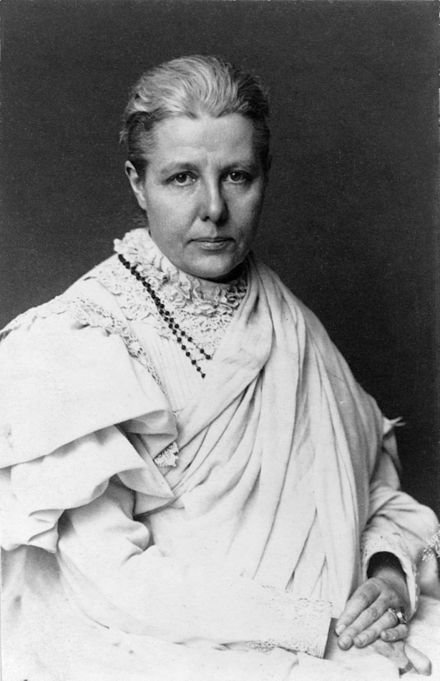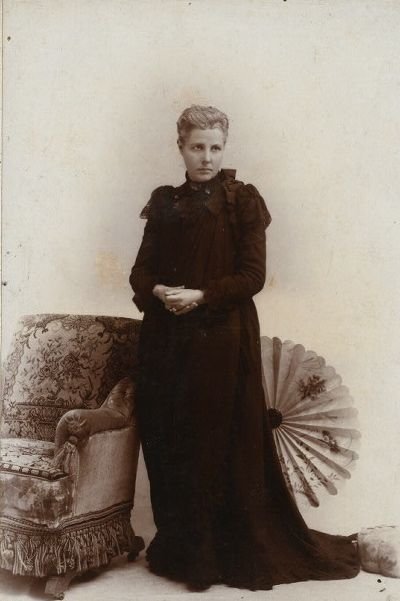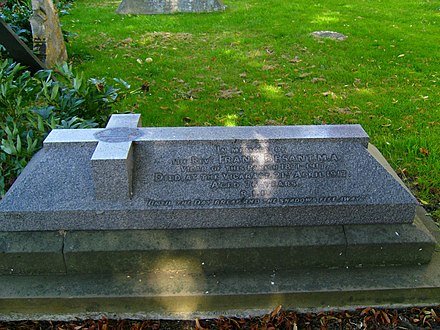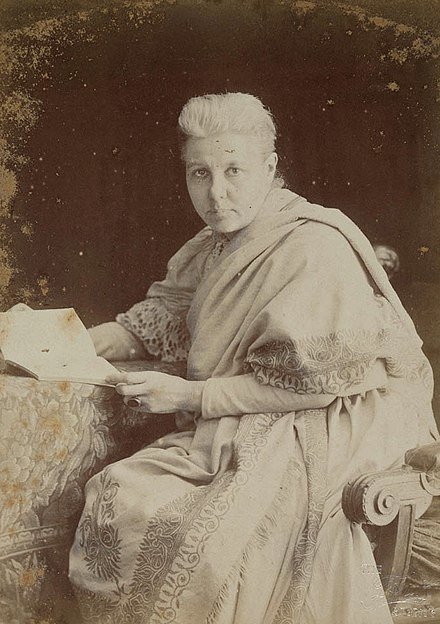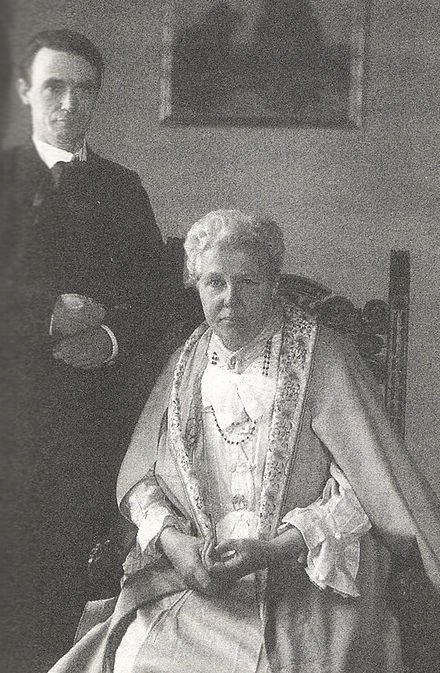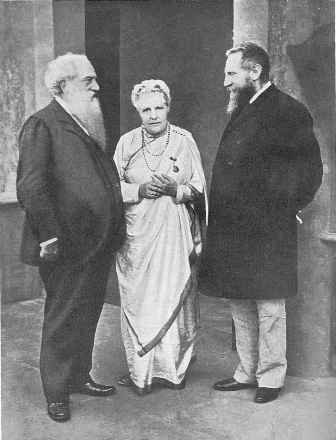British Heritage
Remember, Cherish, Learn.
beta
Annie Besant - Women's Rights
Annie Besant - Contribution to British Heritage and Legacy.
Annie Besant, born Annie Wood on 1st October 1847, was a remarkable British socialist, theosophist, women's rights activist, writer, orator, educationist, and philanthropist. Her contributions to British heritage and society were multifaceted and left a lasting impact on various fields.
Besant was a fierce advocate for women's rights and played a vital role in advancing the cause of gender equality in British society. She fought for women's suffrage, better working conditions, and improved opportunities for women. Her tireless efforts helped break down barriers for women, paving the way for greater gender equality in the UK.
For fifteen years, Besant was a prominent proponent of atheism and scientific materialism in England. She was associated with the National Secular Society (NSS) and actively participated in promoting secular values, freedom of thought, and separation of religion from government affairs.
As an educationist, Besant co-founded the Banaras Hindu University in India, which became one of the premier educational institutions in the country. She also helped establish the Central Hindu School and the Hyderabad (Sind) National Collegiate Board in Bombay (now Mumbai). Her efforts in education significantly contributed to the advancement of knowledge and learning, benefiting British and Indian students alike.
Besant actively supported workers' rights and was involved in various trade union actions, including the London matchgirls strike of 1888 and the Bloody Sunday demonstration. Her advocacy for better working conditions and fair wages greatly influenced social reforms in Britain.
Besant's interest in theosophy grew, and she became a prominent member of the Theosophical Society. She lectured extensively on the subject, traveling to India to spread theosophical teachings. Her influence helped establish the Theosophical Society's international headquarters in Chennai. She also played a crucial role in the development of co-freemasonry, emphasizing spiritual growth and the brotherhood of man and woman.
Besant actively participated in Indian politics, joining the Indian National Congress and becoming a vocal advocate for Indian self-rule and dominion status within the British Empire. She played a pivotal role in the Home Rule League, campaigning for democracy in India. Her efforts contributed to the eventual independence of India from British colonial rule.
Annie Besant's legacy remains a testament to her unwavering dedication to human freedom, social justice, and intellectual exploration. Her contributions to women's rights, education, secularism, and the Indian independence movement have had a lasting impact on British heritage, and her influence on theosophy continues to resonate with spiritual seekers worldwide.
Besant's rich intellectual journey and multifaceted activism make her an inspiring figure in British history, exemplifying the power of individuals to drive positive change and leave a profound legacy for generations to come. Her commitment to social progress and emancipation continues to be celebrated and honored to this day.
Women's Rights Activism and Social Reform:
Besant was a fierce advocate for women's rights and played a vital role in advancing the cause of gender equality in British society. She fought for women's suffrage, better working conditions, and improved opportunities for women. Her tireless efforts helped break down barriers for women, paving the way for greater gender equality in the UK.
Promotion of Secularism and Atheism:
For fifteen years, Besant was a prominent proponent of atheism and scientific materialism in England. She was associated with the National Secular Society (NSS) and actively participated in promoting secular values, freedom of thought, and separation of religion from government affairs.
Promoting Education and Founding Educational Institutions:
As an educationist, Besant co-founded the Banaras Hindu University in India, which became one of the premier educational institutions in the country. She also helped establish the Central Hindu School and the Hyderabad (Sind) National Collegiate Board in Bombay (now Mumbai). Her efforts in education significantly contributed to the advancement of knowledge and learning, benefiting British and Indian students alike.
Involvement in Trade Union Actions and Social Movements:
Besant actively supported workers' rights and was involved in various trade union actions, including the London matchgirls strike of 1888 and the Bloody Sunday demonstration. Her advocacy for better working conditions and fair wages greatly influenced social reforms in Britain.
Contributions to Theosophy and Spiritual Thought:
Besant's interest in theosophy grew, and she became a prominent member of the Theosophical Society. She lectured extensively on the subject, traveling to India to spread theosophical teachings. Her influence helped establish the Theosophical Society's international headquarters in Chennai. She also played a crucial role in the development of co-freemasonry, emphasizing spiritual growth and the brotherhood of man and woman.
Political Activism and Indian Independence Movement:
Besant actively participated in Indian politics, joining the Indian National Congress and becoming a vocal advocate for Indian self-rule and dominion status within the British Empire. She played a pivotal role in the Home Rule League, campaigning for democracy in India. Her efforts contributed to the eventual independence of India from British colonial rule.Annie Besant's legacy remains a testament to her unwavering dedication to human freedom, social justice, and intellectual exploration. Her contributions to women's rights, education, secularism, and the Indian independence movement have had a lasting impact on British heritage, and her influence on theosophy continues to resonate with spiritual seekers worldwide.
Besant's rich intellectual journey and multifaceted activism make her an inspiring figure in British history, exemplifying the power of individuals to drive positive change and leave a profound legacy for generations to come. Her commitment to social progress and emancipation continues to be celebrated and honored to this day.
- Annie Besanten.wikipedia.org
